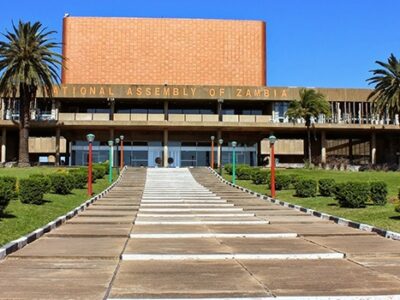Machisa Zimba, Coordinator of Community Based Inclusive Development Network (CBID) for the visually impaired, sheds light on the challenges hindering their access to information, and limiting their freedom of expression.
Among the hurdles highlighted by Zimba were the prohibitive costs of digital devices and the lack of supportive infrastructure systems, which impede their ability to express themselves freely.
When asked about his understanding of media freedom, Zimba, who is visually impaired, emphasized its essence in enabling media institutions and practitioners to disseminate information across various platforms, including print, electronic media, radio, television, and social media.
However, in an interview with Zambia Monitor in Chipata, Eastern Province, Zimba pointed out existing gaps in media freedom, particularly in how people with disabilities receive information.
He cited instances where visually impaired individuals were disadvantaged, such as when job opportunities are advertised on television without accommodating their needs.
Zimba stressed the importance of affordable digital tools to facilitate freedom of expression for persons with disabilities.
He underscored the challenge of accessing expensive devices designed to assist visually impaired communities in effectively expressing themselves.
Highlighting the exorbitant prices of such equipment, Zimba noted the significant information gap it creates for people with disabilities, exacerbated by the lack of local manufacturing.
Zimba noted that while smartphones were widely used, their high cost posed a barrier, especially for unemployed individuals with disabilities.
“Very few people know how to use these digital devices because they are expensive and they are not made in Zambia,” Zimba stressed.
He illustrated this with the example of a visually impaired person struggling to afford a smartphone priced at three thousand Kwacha.
“Imagine someone who doesn’t work, someone who is not well empowered, who is visually impaired, they cannot manage to buy a phone at three thousand Kwacha,” he mentioned.
Furthermore, Zimba pointed out the need for mainstream media to better cater to the needs of persons with disabilities.
He noted the lack of accessibility to newspapers for the visually impaired, stressing the importance of providing braille newspapers alongside print and digital formats.
Zimba highlighted the imperative of addressing these challenges to ensure equal access to information and freedom of expression for all members of society, regardless of their abilities.
WARNING! All rights reserved. This material, and other digital content on this website, may not be reproduced, published, broadcast, rewritten or redistributed in whole or in part without prior express permission from ZAMBIA MONITOR.












Comments